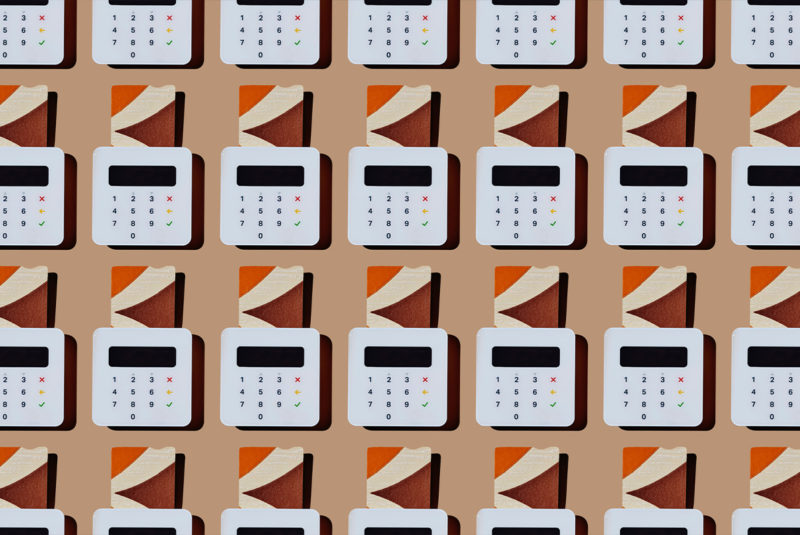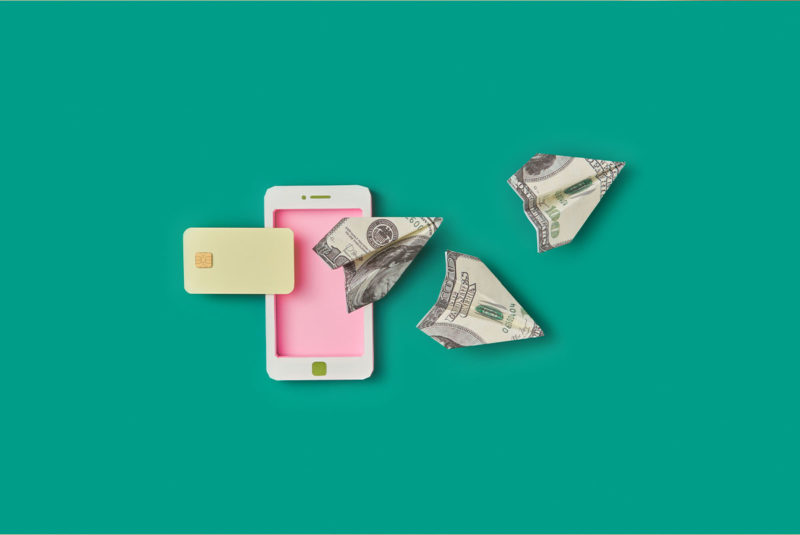So you’ve heard you should focus on building your credit and getting a credit card is a good way to do it.
A lot of stuff you see online or advice from friends might be … questionable, but these two statements are very true.
Strong credit is important because it helps you obtain competitive interest rates and qualify for loans, apartments, mortgages, and sometimes, jobs. And one of the easiest ways to build credit is by using credit cards responsibly.
In this article, we’ll reveal the best credit cards for building credit and explain how to take advantage of this strategy.
Best Credit Cards for Building Credit
If you want to get a credit card with no credit, you can’t go straight for the best rewards cards with all the bells and whistles. At first, you’ll likely need to stick to cards designed for customers with limited credit.
Here are three great choices:
Petal® 2 “Cash Back, No Fees” Visa® Credit Card: 5 out of 5 stars
The Petal® card could offer a smooth entry into credit cards even if you don’t have an established credit history. To approve you for a card, Petal® will ask to connect to your bank account so they can see how you handle your money. If you have some established credit, you may not have to link your bank account.
Capital One Journey Student Rewards: 4 out of 5 stars
Don’t let the name fool you. You don’t have to be a student to apply for this card. With no annual fee and a simple cash-back rewards program, this is one of our favorite starter cards. If you use the card responsibly, you’ll likely be considered for a higher credit line, which would increase your available credit and help improve your scores.
Capital One Platinum Mastercard®: 4 out of 5 stars
While this card doesn’t offer any rewards, we’re including it because it’s from a reputable card issuer, has no annual fee and offers an easy pathway to a higher credit line.
Best Secured Credit Cards for Building Credit
If you can’t get approved for the unsecured credit cards we’ve listed – or if you don’t trust yourself with credit quite yet – consider applying for a secured credit card instead. Secured cards are advertised to people with poor credit, but they can also serve as good credit cards for beginners.
With secured cards, you put down a refundable security deposit that, in most cases, serves as your credit line. They are different from prepaid cards because your card activity is usually reported to some or all of the major credit bureaus: ExperianTM, TransUnion® and Equifax®.
The following secured options are all good credit cards for building credit:
Discover it® Secured Credit Card: 5 out of 5 stars
With no annual fee, generous cash-back rewards and an easy upgrade to an unsecured card, this is our top pick for a secured card with solid credit-building benefits.
Capital One Platinum Secured Credit Card: 4 out of 5 stars
This card works a bit differently than most secured cards. The issuer will base your initial deposit on your creditworthiness. In return, you’ll receive a $200 credit limit. Alternatively, you can deposit more (up to $1,000 more) for a larger credit line.
While this card’s a solid option, it doesn’t offer rewards or an automated upgrade path, so we’d recommend the Discover it® Secured instead. In our opinion, the only reason to prioritize this card is if Discover isn’t accepted where you live and shop.
When you visit MoneyTips, we want you to know that you can trust what’s in front of you. We are an authoritative source of accurate and relevant financial guidance. When MoneyTips content contains a link to partner or sponsor affiliated content, we’ll clearly indicate where that happens. Any opinions, analyses, reviews or recommendations expressed in our content are of the author alone, and have not been reviewed, approved or otherwise endorsed by the advertiser.
We make every effort to provide up-to-date information; however, we do not guarantee the accuracy of the information presented. Consumers should verify terms and conditions with the institution providing the products. Some articles may contain sponsored content, content about affiliated entities or content about clients in the network. While reasonable efforts are made to maintain accurate information, the information is presented without warranty.
Best Student Credit Cards for Building Credit
Because many first-time credit card holders are students, card issuers have a slew of cards just for students. Here are two student cards we like:
Discover it® Student Cash Back: 5 out of 5 stars
This cash-back card earns 2% cash back at restaurants and gas stations. This card might be a better bet if you don’t want to deal with the hassle of signing up for bonus categories every quarter.
How Do Credit Cards Build Credit?
Now that you know which credit cards are best for building credit, you’re probably wondering how it all works.
Lenders have no information about you if you’ve never taken out a line of credit before. Sure, a parent can vouch for you all they want, but the lender doesn’t know how you handle money, so they won’t know for sure if you’re going to be a great borrower or a terrible one.
Approving you for a credit card with a $500 limit is less risky to a lender than approving you for a $150,000 mortgage. Many lenders view credit cards as a safer way to give you a “trial run.” For you, it’s likely an easy way to get your foot in the door and demonstrate your responsible use of other people’s money.
Once you receive your first credit card, the credit card issuer will usually begin reporting your card activity to the major credit bureaus.
They’ll include data like how long the account’s been open, how much of your available credit you’re using and how many payments you’ve missed. But you don’t want any late payments on your credit reports because they can damage your credit history – and fast.
You’ll slowly build a positive credit history when you pay off your card purchases on time and in full.
5 Important Tips for Building Credit With Credit Cards
Not having a credit history is a double-edged sword. It will be challenging to get approved for credit, but you haven’t made any “mistakes” or run into financial situations that will take years to erase from your reports.
It’s important to proceed with caution and build your credit slowly and responsibly. Here are five tips to follow:
- Always pay your statements on time: The cardinal rule of credit cards is to pay your bills by the due date. You can make on-time payments easier by setting up autopay.
- Only charge what you can afford: To avoid growing a mountain of debt, you should only spend as much as you can afford to pay off each month. We recommend paying your statement balance in full every billing cycle. When you pay off your balance, you avoid interest charges on your purchases. That can help keep you from spiraling into unmanageable credit card debt.
- Never take out a cash advance: Credit cards are different from debit cards. Except for dire emergencies, they shouldn’t be used at (or as) ATMs. Cash advances have high fees and interest rates and aren’t worth the cost. Some issuers might worry that you’re using cash advances because of money problems. For some card companies and lenders, that would increase your risk profile.
- Ask for a higher credit limit: If your account is in good standing, you can request a credit limit increase. Usually, you can do this right from your online account. If you get the increase, don’t max out your card to its new limit. The further you are from your spending limit (or credit limit), the lower your credit utilization ratio is – and that can help boost your credit scores.
- Don’t close your first card: Let’s say you find yourself in the welcome position of being able to apply for another card. Don’t celebrate by closing your first card (unless it’s a secured card and you want your refundable deposit back). The average age of your accounts will factor into calculating your credit scores. The longer an account is open, the better. It’s wise to keep your oldest account open forever.
When you’re at the beginning of your credit journey, it can seem like you’ll never get the scores you want. But by using credit cards wisely and diligently, you’ll slowly build your credit. And one day, you’ll be eligible for the best credit card offers.
Frequently Asked Questions
What are the best credit cards for beginners?
Our favorite credit cards for beginners include:
- Petal® 2 “Cash Back, No Fees” Visa® Credit Card: No credit is required, and you’ll earn 1% back on all purchases (1.5% after 12 on-time payments).
- Journey Student Rewards from Capital One: You don’t need to be a student to apply for this card. If you have average or limited credit, you can apply and receive 1% cash back on all purchases (1.25% if you make on-time payments).
- Capital One Platinum Mastercard®: This is a no-frills card for consumers with average or limited credit.
- Discover it® Secured Credit Card: This card works if you have bad, limited or no credit history. You’ll earn 2% cash back at restaurants and gas stations (on up to $1,000 per quarter, then 1%) and 1% on everything else. A refundable deposit is required.
- Capital One Platinum Secured Credit Card: This card works if you have bad, limited or no credit history. A refundable deposit is required. Depending on your creditworthiness, you may be able to make a smaller deposit than your approved credit limit.
- Discover it® Student Cash Back: This card works if you have limited or no credit history. You’ll earn 5% cash back in rotating categories for up to $1,500 per quarter. After that, you’ll get 1% (activation required). If you can maintain a 3.0 GPA, you’ll get a $20 statement credit every year for up to 5 years.
- Discover it® Student Chrome: This card works if you have limited or no credit history. You’ll earn 2% cash back at gas stations and restaurants up to $1,000 per quarter and 1% after that. If you can maintain a 3.0 GPA, you’ll get a $20 statement credit every year for up to 5 years.
Can you get a credit card with no credit?
Yes! Cards, like the Petal® 2 “Cash Back, No Fees” Visa® Card and the Discover it® Student Cash Back, are specifically designed to help consumers with limited or no established credit build their credit scores.
You could also try a secured card. These cards require refundable security deposits, which make it safer for issuers to lend you money if you’re inexperienced with credit.
Can minors get credit cards?
No. It’s illegal for a minor to open a credit card account. But that doesn’t mean you can’t start building credit for a minor.
The best way to start establishing credit for a minor is to add them to one of your card accounts as an authorized user. Just keep in mind that your card activity can either help or hurt their credit. If you miss any payments, your credit scores won’t be the only ones damaged.
How do you get a credit card for the first time?
Here’s a step-by-step guide to getting your first credit card:
- Educate yourself: Start by learning how credit scores, credit reports and credit cards work.
- Check your credit reports and scores to see where you stand: You may have some credit history built up already if you’ve taken out student loans or a parent added as an authorized user on their card.
- Pick a card: Review your credit and consider your financial situation before you start your research to find a card that fits your needs.
- Apply for the card: You typically apply for credit cards online. You’ll need to provide personal information — like your name, address, Social Security number, etc. — and financial information, like your income. After you submit your application, the card issuer will run a hard credit check on your credit reports. Then they’ll either approve or deny your application or request that you provide more information.
Our list of beginner credit cards is a great starting point. But if you’ve already built credit, you may want to browse cards designed for consumers with fair or excellent credit.



